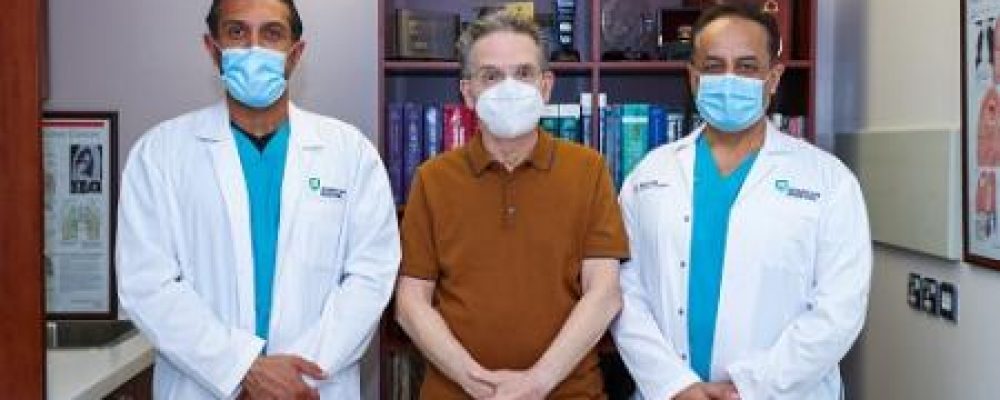A rare Whipple procedure performed at the American Hospital Dubai in 2nd, March 2021 saves the life of Paul Morris, 73, an American who was diagnosed with pancreatic cancer.
With the world facing the pandemic crisis, travelling for any country treatment is becoming a challenging task. Mr. Paul Morris, Baghdad based retired army professional, picked Dubai for his treatment, considering it the safest place for cancer care and disease management. He had concerns about travelling to his home country due to the high numbers of corona cases in the United States.
Mr. Morris’s surgeon Dr Ali AL Dameh, professor of surgery, said that the Whipple procedure is a complicated and risky operation to remove the pancreas’ head, the first part of the small intestine (duodenum), the gallbladder and the bile duct. It is a high-risky surgery known to be performed only at limited centers globally. The surgery is lifesaving that usually takes between 4-6 hours for a pancreatic operation.
It is a major operation that requires expert surgical experience, advanced ICU capabilities, post-operative care units, and high-level anesthesia than other procedures. This makes it a complicated cancer procedure that only hospitals with a good track record for managing complex surgical cases can offer.
“The procedure was successfully conducted recently at American Hospital Dubai. Mr.Paul Morris was discharged on day seven of his operation and is recovering well with no complications,” said Dr Ali, a Harvard Medical School – Boston trained surgeon.
partner and Dr Imran Al Haq conducted the Whipple procedure for Mr. Paul Morris. Both Dr Ali and Dr Imran have a background working in some of the most recognized centers in the United States, doing complex Liver and Pancreatic cases, including transplantation, and this gives the surgical team the unique skill set and confidence to perform these highly complex oncologic cases successfully with safety and quality being the main outcome objective.
The doctor explained that patients age [older people], the tumour’s position – the pancreas at the center of the abdomen intersecting the liver, GI tract, intestine, and major blood vessels surrounding it, all makes it a challenging and risky surgery. Moreover, diagnosing the cancer condition at late stages makes it more dangerous for the patient’s recovery.
“The Whipple operation is a lifesaving procedure, and patients that do well in the first seven days post-surgery often see most successful recovery rates. Moreover, early-stage detection of cancers often provides the best chance of treatment and cure.”
“Around 3-5 years back, patients diagnosed with cancer would not have much help. However, now the possibility of performing such complex surgical procedures like Whipple operation allows people to battle the tumors with a high level of success rate and fewer chances of complications.”
The advancement in treatment in American Hospital gives patients a chance to live, helping them fight cancers of esophageal, lungs, pancreas, neck, liver, abdominal, and other forensics tumors.
“It gives me great satisfaction to be able to provide a new hope of recovery to the cancer patients, who are usually traumatized emotionally, psychologically, socially and professionally, when they learn about their disease,” said Dr Ali.




